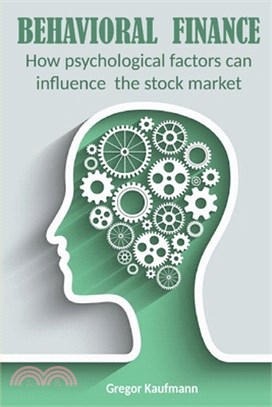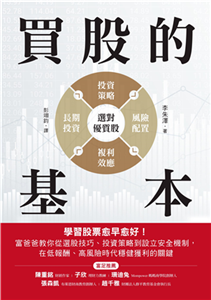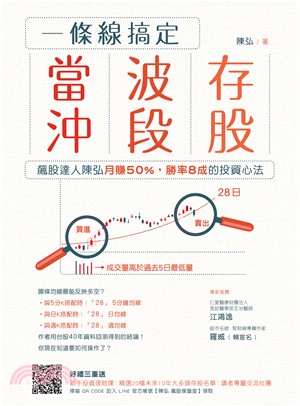Behavioral Finance: How psychological factors can influence the stock market
商品資訊
ISBN13:9798550053676
出版社:Independently published
作者:Gregor Kaufmann
出版日:2020/10/19
裝訂:平裝
規格:22.9cm*15.2cm*0.4cm (高/寬/厚)
商品簡介
Behavioral finance, a sub-field of behavioral economics, proposes that psychological influences and biases affect the financial behaviors of investors and financial practitioners. Moreover, influences and biases can be the source for an explanation of all types of market anomalies and specifically market anomalies in the stock market, such as severe rises or falls in stock price.
Behavioral finance can be analyzed from a variety of perspectives. Stock market returns are one area of finance where psychological behaviors are often assumed to influence market outcomes and returns but there are also many different angles for observation. The purpose of the classification of behavioral finance is to help understand why people make certain financial choices and how those choices can affect markets. Within behavioral finance, it is assumed that financial participants are not perfectly rational and self-controlled but rather psychologically influential with somewhat normal and self-controlling tendencies.
One of the key aspects of behavioral finance studies is the influence of biases. Biases can occur for a variety of reasons. Biases can usually be classified into one of five key concepts. Understanding and classifying different types of behavioral finance biases can be very important when narrowing in on the study or analysis of industry or sector outcomes and results.
The efficient market hypothesis (EMH) says that at any given time in a highly liquid market, stock prices are efficiently valued to reflect all the available information. However, many studies have documented long-term historical phenomena in securities markets that contradict the efficient market hypothesis and cannot be captured plausibly in models based on perfect investor rationality.
The EMH is generally based on the belief that market participants view stock prices rationally based on all current and future intrinsic and external factors. When studying the stock market, behavioral finance takes the view that markets are not fully efficient. This allows for observation of how psychological factors can influence the buying and selling of stocks.
The understanding and usage of behavioral finance biases are applied to stock and other trading market movements daily. Broadly, behavioral finance theories have also been used to provide clearer explanations of substantial market anomalies like bubbles and deep recessions. While not a part of EMH, investors and portfolio managers have a vested interest in understanding behavioral finance trends. These trends can be used to help analyze market price levels and fluctuations for speculation as well as decision-making purposes.
主題書展
更多書展今日66折
您曾經瀏覽過的商品
購物須知
外文書商品之書封,為出版社提供之樣本。實際出貨商品,以出版社所提供之現有版本為主。部份書籍,因出版社供應狀況特殊,匯率將依實際狀況做調整。
無庫存之商品,在您完成訂單程序之後,將以空運的方式為你下單調貨。為了縮短等待的時間,建議您將外文書與其他商品分開下單,以獲得最快的取貨速度,平均調貨時間為1~2個月。
為了保護您的權益,「三民網路書店」提供會員七日商品鑑賞期(收到商品為起始日)。
若要辦理退貨,請在商品鑑賞期內寄回,且商品必須是全新狀態與完整包裝(商品、附件、發票、隨貨贈品等)否則恕不接受退貨。
























